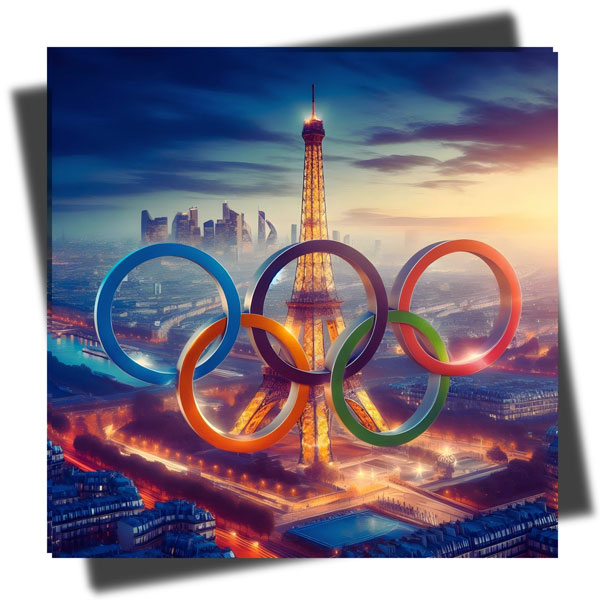The 2024 Paris Olympics made innovative use of AI and advanced scientific technologies

[Paris Olympics. Photo Credit: Pixabay]
The 2024 Paris Olympics opened new horizons in sports through the innovative application of artificial intelligence (AI) and advanced science and technology.
One of the most notable advancements was the introduction of AI-powered personalized training programs.
AI-driven cameras and sensors analyzed athletes' movements in real-time, allowing for customized training plans tailored to individual needs.
For example, the Korean archery team used AI and robotics to precisely analyze posture and shooting angles, while track and field athletes optimized their performance through AI analysis of running techniques.
Thanks to these technological innovations, the Korean archery team's success at the 2020 Tokyo Olympics, where they won five gold medals, continued into the 2024 Paris Olympics.
The archery robot precisely measured athletes’ posture and shooting angles, allowing for repeated training under optimal conditions.
This enabled athletes to focus solely on their shooting, reducing psychological pressure and delivering top performances during competitions.
In May, the International Olympic Committee (IOC) announced on its website that "AI has been used to support referees and judges since the 2018 PyeongChang Olympics, and it is expected to be applied to various events in the 2024 Paris Olympics."
In Paris, AI-powered video review systems and goal-line technology enhanced the accuracy of refereeing decisions, thus improving fairness across several sports.
In soccer, for instance, AI was employed to determine scoring with precision, reducing the possibility of errors and ensuring fair play for athletes.
Since its initial introduction at the 2014 Brazil World Cup, this technology has been utilized across various sports, contributing to the fair management of competitions.
Moreover, this Olympics introduced AI-based computer vision technology across multiple sports, including gymnastics, pole vaulting, tennis, diving, and beach volleyball.
This technology tracked athletes' movements in real-time and reconstructed them in 3D to improve judging accuracy.
In pole vaulting, AI analyzed the distance, body angle, and jump height, dramatically enhancing judgment precision.
Spectators also benefited from technological advancements at the Paris Olympics.
Virtual Reality (VR) and augmented reality (AR) technologies offered fans to enjoy an immersive experience without being physically present at the stadium.
The use of 360-degree cameras allowed viewers to watch events from various angles, making them feel like they were in the arena.
For instance, in gymnastics, VR technology enabled spectators to experience the athletes’ complex aerial maneuvers from multiple perspectives in real-time, delivering a unique and engaging viewing experience.
NBC introduced an AI-powered caster that provided personalized highlight videos reels for viewers.
The AI automatically edited game footage and replicated the voice of legendary broadcaster Al Michaels to deliver up to 7 million customized highlight reels across the United States.
This allowed fans to catch all the critical moments of their favorite sports or athletes without missing any action.
These technological innovations considerably deepened the overall Olympic experience for viewers, making it more interactive and tailored to individual preferences.
In addition, American athletes used advanced cooling equipment called 'CoolMitt,' developed by Stanford University to maintain optimal performance in hot weather.
This device efficiently dissipates heat through the palms, helping athletes regulate their body temperature effectively.
Meanwhile, Japanese volleyball players wore special uniforms made from a new material that absorbs infrared radiation, addressing the challenges of intense heat and the privacy concerns related to thermal imaging.
The 2024 Paris Olympics will be remembered for how AI and technology revolutionized sports, enhancing athlete performance, ensuring fair competition, and elevating the spectator experience.
These advancements will undoubtedly shape the future of the Olympics, making the games even more dynamic and forward-looking.

- Aiden Been Jo / Grade 10
- Ssangyong High School

![THE HERALD STUDENT REPORTERS [US]](/assets/images/logo_student_us.png)
![THE HERALD STUDENT REPORTERS [Canada]](/assets/images/logo_student_ca.png)
